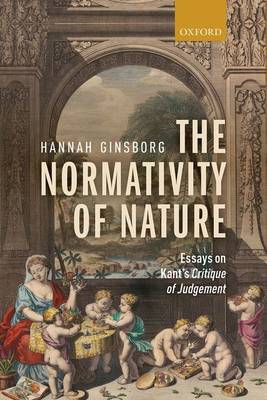
- Retrait gratuit dans votre magasin Club
- 7.000.000 titres dans notre catalogue
- Payer en toute sécurité
- Toujours un magasin près de chez vous
- Retrait gratuit dans votre magasin Club
- 7.000.0000 titres dans notre catalogue
- Payer en toute sécurité
- Toujours un magasin près de chez vous
The Normativity of Nature
Essays on Kant's Critique of Judgement
Hannah (University of California, Berkeley) Ginsborg
Livre broché
69,95 €
+ 139 points
Description
Hannah Ginsborg presents fourteen essays which establish Kant's Critique of Judgment as a central contribution to the understanding of human cognition. The papers bring out the significance of Kant's philosophical notion of judgment, and use it to address interpretive issues in Kant's aesthetics, theory of knowledge, and philosophy of biology.
Spécifications
Parties prenantes
- Auteur(s) :
- Editeur:
Contenu
- Nombre de pages :
- 372
Caractéristiques
- EAN:
- 9780199547982
- Date de parution :
- 27-11-14
- Format:
- Livre broché
- Dimensions :
- 158 mm x 234 mm
- Poids :
- 560 g

Les avis
Nous publions uniquement les avis qui respectent les conditions requises. Consultez nos conditions pour les avis.






